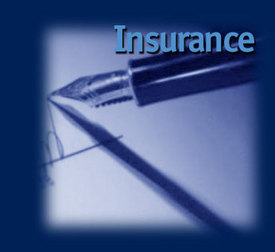 In the past few weeks, we have seen homes destroyed throughout the country due to the recent ravaging rage of tornado strikes.
In the past few weeks, we have seen homes destroyed throughout the country due to the recent ravaging rage of tornado strikes.
Unfortunately, many of those homeowners will soon discover that their insurance won’t cover all of their rebuilding cost. The good news, however, is that the typical homeowners insurance policy does cover tornado damage. But as will be discussed below, it may not be enough. And that should serve as a cautionary tale for all of us residing in Florida as hurricane season gets under way while also serving as a reminder to check our insurance policy now, while also checking on the financial strength of the insurance company providing insurance coverage.
Other natural disasters, such as slides and earthquakes, are not typically covered under the standard insurance policy. But while 96% of homeowners have insurance, 64% of homes are undervalued for insurance purposes.
Therefore, with hurricane season upon us, it is critical that all homeowners in the state of Florida review their insurance policies for purposes of understanding exactly what coverages they have purchased. A typical homeowners policy will generally provide coverage that falls into the following three categories.
Replacement cost. This covers the cost of repairing or replacing your home, based on a set dollar amount. However, one of the problems with this coverage is that it often times does not reflect the increase in the cost of construction and labor since you took out your policy in your community. If your community is destroyed by a natural disaster, then that means that there could be higher demand for such construction and labor needs, and that will inevitably push up the cost of repairing and replacing your home.
Extended replacement cost. Here, the insurance company agrees to pay a certain percentage above the replacement cost to account for inflation. So, for instance, if your replacement cost coverage is $250,000, extended replacement cost coverage will pay up to 120% of that, or $300,000. However, even with that additional percentage of coverage afforded for purposes of assisting and paying for the replacement cost, if you have not adjusted your numbers in sometime, you may still fall short in the event of a catastrophic disaster.
Guaranteed Replacement Cost. This coverage will pay the total cost of replacing your home no matter how much prices have increased since you took out the insurance policy. However, not only of this type of coverage more expensive, it is also very difficult to fix your from an insurance company. The reason being is that insurance companies want to control their cost, and this type of coverage may permit the cost to spiral out of control. Paying for your lost or damaged items.
Replacing Your Stuff. Most insurance policies cover lost or damaged items. Typical coverage ranges from 50% to 70% of the amount of insurance you have on the structure of your home.
For instance, if your insurance policy provides up to $250,000 to rebuild your home, you can get an additional $125,000-$175,000 to replace your belongings. Moreover, you can also insure your belongings for the actual cash value, or the replacement cost.
The actual cash value coverage means that if you lost your 10 -year-old TV to a natural disaster, then you will be compensated the amount of money that your 10 -year-old TV set is worth today.
On the other hand, replacement coverage, while generally more expensive, is often times worth the additional premium cost. The reason being that if you lost your 10 year old TV then you would be entitled to receive new money today that would allow you to purchase a new TV today.